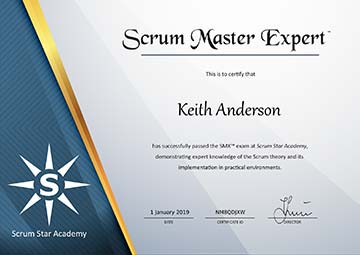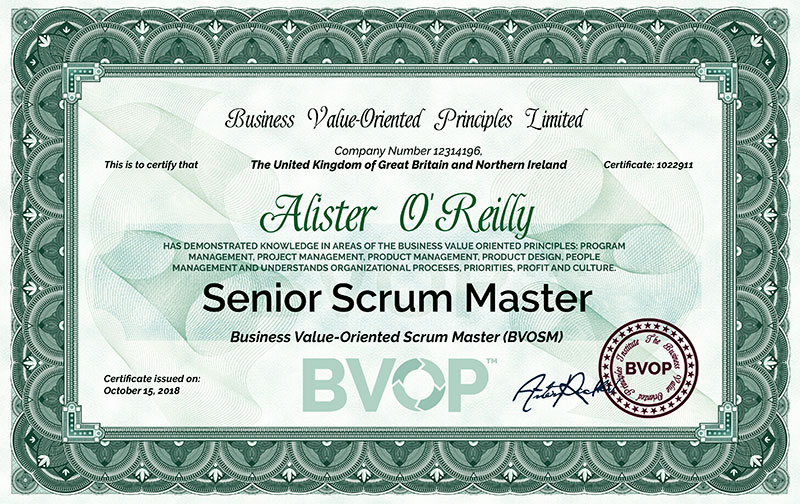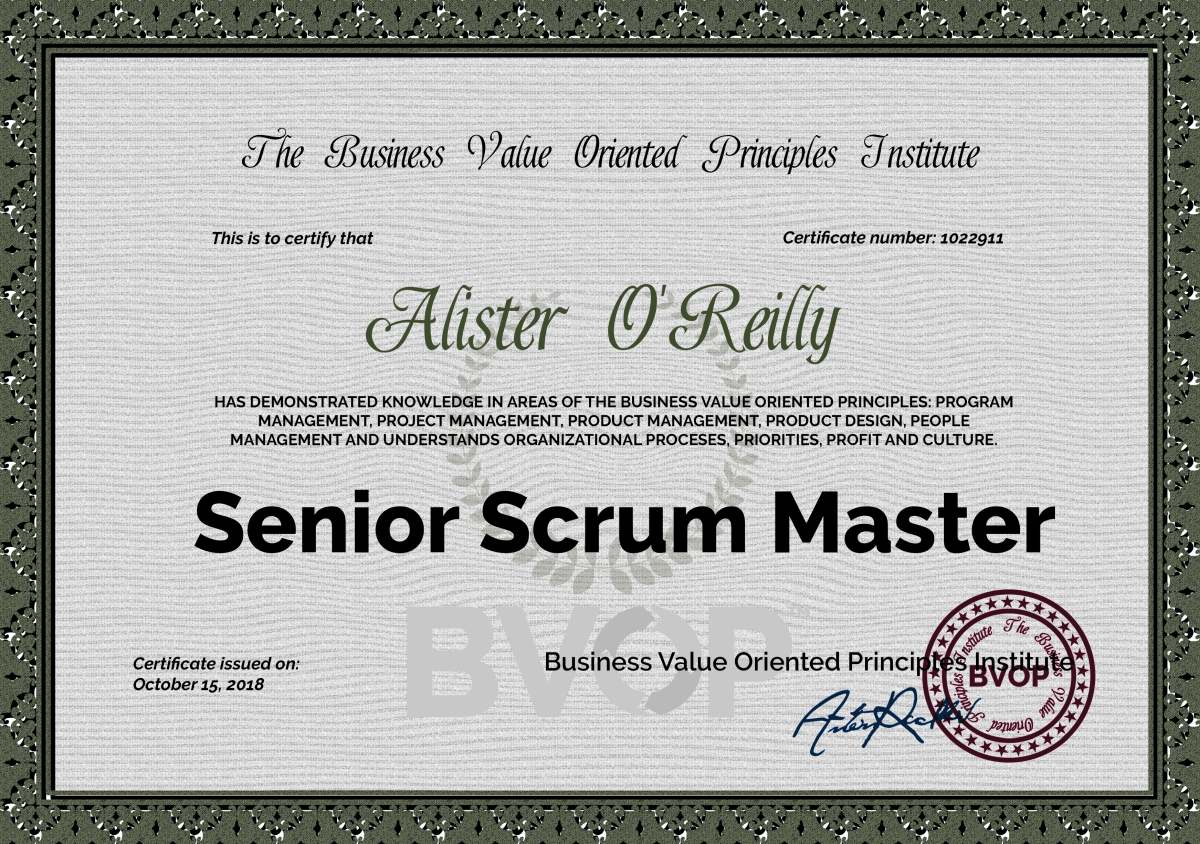Scrum Master Certification: A Brief Overview
Scrum Master certification has gained significant popularity in recent years, becoming a sought-after credential for professionals in the agile project management field. The certification serves as evidence of an individual’s proficiency in the Scrum framework and their commitment to continuous learning and improvement. Among the most recognized Scrum Master certifications are the Certified ScrumMaster (CSM) offered by the Scrum Alliance and the Professional Scrum Master (PSM) provided by Scrum.org.
The Role and Responsibilities of a Scrum Master
A Scrum Master plays a pivotal role in the successful implementation of the Scrum framework, ensuring the team follows Scrum principles and practices. Key responsibilities of a Scrum Master include:
- Facilitating Scrum events, such as Sprint Planning, Daily Scrums, Sprint Reviews, and Sprint Retrospectives, to ensure they are productive and focused on the right objectives.
- Removing impediments that may hinder the team’s progress, allowing them to maintain a steady development pace and deliver high-quality, potentially shippable increments at the end of each Sprint.
- Coaching the team and the organization on Scrum principles, practices, and values, fostering a culture of continuous improvement and learning.
- Collaborating with the Product Owner to ensure the Product Backlog is well-groomed, transparent, and reflects the needs of the stakeholders.
- Maintaining a healthy and positive team environment, promoting self-organization, and empowering team members to make decisions and take ownership of their work.
By fulfilling these responsibilities, a Scrum Master contributes significantly to the smooth functioning of the Scrum framework, enabling the team to deliver value more efficiently and effectively.
Benefits of Obtaining a Scrum Master Certification
Scrum Master certification offers several advantages to professionals, making it a valuable investment for those interested in pursuing a career in agile project management. Some of the primary benefits include:
- Enhanced credibility: Certification serves as a third-party validation of an individual’s knowledge and skills in Scrum, increasing their credibility among peers, employers, and clients.
- Better job prospects: Many organizations prefer or require Scrum Master certification for agile project management roles, opening up new opportunities for certified professionals.
- Opportunity to work with diverse teams: Scrum Master certification can help individuals secure roles in diverse industries and organizations, providing a rich and varied work experience.
- Deeper understanding of Scrum principles and practices: The certification process often involves rigorous study and hands-on practice, enabling professionals to develop a deeper understanding of Scrum and its applications.
By obtaining a Scrum Master certification, professionals can position themselves for success in the rapidly growing field of agile project management.
Drawbacks and Limitations of Scrum Master Certification
While Scrum Master certification offers several benefits, it is essential to acknowledge its potential drawbacks and limitations. Some of these include:
- Lack of practical experience: Certification alone may not provide sufficient hands-on experience with Scrum. It is crucial to complement formal training with real-world practice to develop the necessary skills.
- Risk of “certification mills”: The increasing popularity of Scrum Master certification has led to the emergence of organizations that offer low-quality, easily obtainable certifications without rigorous evaluation or practical demonstration of skills.
- Need for continuous learning and improvement: The field of agile project management is constantly evolving, and Scrum Masters must commit to ongoing learning and development to stay current and effective in their roles.
To mitigate these limitations, aspiring Scrum Masters should prioritize gaining practical experience, carefully select reputable certifying bodies, and invest in continuous learning and development.
How to Choose the Right Scrum Master Certification
Choosing the right Scrum Master certification can significantly impact your career growth and success in the field. Consider the following factors when making your decision:
- Reputation of the certifying body: Opt for well-established organizations with a strong reputation in the industry, such as the Scrum Alliance or Scrum.org, which offer the Certified ScrumMaster (CSM) and Professional Scrum Master (PSM) certifications, respectively.
- Alignment with personal career goals: Assess how the certification aligns with your short-term and long-term career objectives. For example, if you aim to work in a specific industry or with particular methodologies, choose a certification that supports those goals.
- Cost and time commitment: Compare the financial investment and time required to obtain each certification. Some certifications may have higher fees or more extensive training requirements, so it’s essential to choose one that fits your budget and schedule.
By carefully evaluating these factors, you can select a Scrum Master certification that supports your career aspirations and provides long-term value.
Real-life Success Stories: Scrum Master Certification Holders Share Their Experiences
Scrum Master certification has positively impacted the careers of many professionals. Here are a few success stories that demonstrate the value of certification:
“After obtaining my CSM certification, I noticed a significant improvement in my understanding of Scrum principles and practices. I also found that potential employers were more receptive to my job applications, and I ultimately secured a position with a reputable company where I could apply my new skills.”
– John D., Certified ScrumMaster
“The PSM certification provided me with the credibility I needed to lead Scrum initiatives in my organization. I’ve been able to coach teams more effectively, resolve conflicts more efficiently, and drive continuous improvement in our development processes.”
– Sarah K., Professional Scrum Master
These success stories illustrate the potential benefits of Scrum Master certification, including improved credibility, enhanced job prospects, and the ability to make a more significant impact in the workplace.
Alternatives to Scrum Master Certification: On-the-job Training and Self-study
While Scrum Master certifications can provide valuable knowledge and credibility, they are not the only path to becoming a successful Scrum Master. On-the-job training and self-study can also be effective alternatives, offering hands-on experience, mentorship, and continuous learning opportunities.
- On-the-job training: Learning Scrum principles and practices through direct experience in a work environment can be an invaluable way to develop your skills. By working on a Scrum team and learning from experienced Scrum Masters, you can gain practical knowledge, build a strong foundation, and establish a network of professional connections.
- Mentorship: Seeking guidance from an experienced Scrum Master can help you navigate challenges, refine your skills, and accelerate your professional growth. A mentor can provide personalized advice, share best practices, and offer insights based on their own experiences in the field.
- Self-study: Engaging in self-study through books, online courses, and other resources can help you deepen your understanding of Scrum principles and practices. By supplementing formal training with self-study, you can tailor your learning experience to your unique needs, interests, and career goals.
By combining on-the-job training, mentorship, and self-study, you can build a strong foundation in Scrum and develop the skills necessary to excel as a Scrum Master, all while potentially saving time and resources compared to formal certification programs.
Conclusion: Is Scrum Master Certification Worth It?
Deciding whether to pursue a Scrum Master certification depends on various factors, including personal and professional goals, learning style, and budget. While Scrum Master certifications offer numerous benefits, such as enhanced credibility, better job prospects, and a deeper understanding of Scrum principles, they also come with potential drawbacks, such as the lack of practical experience and the need for continuous learning and improvement.
On-the-job training and self-study can be effective alternatives or complements to formal certification programs. By gaining hands-on experience, seeking mentorship, and engaging in continuous learning, you can develop the skills necessary to excel as a Scrum Master without the financial and time commitments associated with certification.
Ultimately, the decision to pursue a Scrum Master certification should be based on a careful evaluation of your individual needs, goals, and circumstances. By considering the key points discussed in this article, you can make an informed decision and embark on a path that best supports your growth and success as a Scrum Master.







